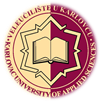 8:00 – 9:00 – Registration
8:00 – 9:00 – Registration
9:00 -9:30 – Beginning of the conference
9:30 – 11:00 – Plenary session I
11:10 – 11:45 – Coffee break
11:45 – 13:15 – Plenary Session II
13:30 – 14:30 – Lunch
14:45 – 16:45 – Panel Sessions
17:00 – End of the conference
Conference broadcast available online at: www.ino2014.zetosa.pl
Programme of Plenary and Panel Sessions
I plenary session: Concepts and measurement of enterprise innovation – chairman Prof. Wladyslaw Blasiak, PhD
- From Daniel Kahneman to cognitive education – Prof. Wladyslaw Blasiak, PhD, Malgorzata Godlewska, PhD, Roman Rosiek, PhD, Dariusz Wcislo, PhD (Pedagogical University of Cracow – Poland)
- Recognition of determinants of innovation capacity of enterprises – Prof. Leszek Koziol, PhD, Anna Wojtowicz, PhD (Malopolska School of Economics in Tarnow – Poland)
- Innovation management model developed in the framework of the international project RAINOVA – Jaroslaw Chrobot, PhD (Lower Silesian Innovation and Science Park SA Wroclaw – Poland)
- Economic cycle and innovation activity in Malopolska industry system – Asst. Prof. Arkadiusz Swiadek, PhD (University of Zielona Gora – Poland) – online
- The effects of innovation activity of industrial enterprises in the high-tech sector in Poland – Piotr Dzikowski, PhD (University of Zielona Gora – Poland) – online
- Discussion
II plenary session: Exemplification of innovative solutions – chairman Prof. Androniki Kavoura, PhD
- Advertizing activities in social media and the creation of a community belonging in the digital era – Prof. Androniki Kavoura, PhD (Technological Educational Institute of Athens – Greece)
- Corporate governance and innovation – Prof. Magdalena Jerzemowska, PhD (University of Gdansk – Poland)
- Child-parent relationships determinant of social status in the child group – Violeta Karcelianska-Stancheva, PhD (Trakia University – Bulgaria)
- Exploring Corporate Social Responsibility practices of Greek companies – Alexandros Sahinidis, PhD, Prof. Androniki Kavoura, PhD (Technological Educational Institute of Athens – Greece)
- Social consequences of innovation – Prof. Lyuben Dimitrov Hristov, PhD (University of Agribusiness and Rural Development – Bulgaria)
- The role of Non-Governmental Organisations in Turkey in the accession process to the European Union – Asst. Prof. Tülay Yildirim, PhD (Yeni Yuzyil University, Turkey)
- Living labs in integrated agriculture and tourism activities. Driving innovations for sustainable rural development – Asst. Prof. Ekaterina Arabska, PhD, (University of Agribusiness and Rural Development – Bulgaria)
- Innovation strategy for smart specialization of Bulgarian Ministry of Economy and Energy – Asst. Prof. Ivanka Shopova, PhD (University of Agribusiness and Rural Development – Bulgaria)
- Discussion
Panel A: Knowledge, creativity and entrepreneurship in an organization – chairman Prof. Magdalena Jerzemowska, PhD
- Creativity and innovation in business activity – Katarzyna Szara, PhD (University of Rzeszow – Poland)
- Technological innovations in the context of sociological theory – Magdalena Zdun, PhD (Cracow University of Economics – Poland)
- Investments in intangible assets and the level of technological innovation of industrial listed companies – Michal Comporek, MSc (University of Lodz – Poland)
- Innovations implemented by self-employed women in Poland – case studies – Sandra Misiak, PhD (University of Szczecin, Poland)
- Is the Polish economy innovative? – Maria Dabrowa, PhD (Malopolska School of Economics in Tarnow – Poland)
- Corporate Social Responsibility in the large companies in the city of Karlovac – Ivana Varičak, MSc (Karlovac University of Applied Sciences – Croatia)
- Discussion
Panel B: Sources of innovation and the mechanisms to support organization innovation – chairman Prof. Jan Siekierski, PhD
- Concept of model of information policy public university in the context of sustainable management – Asst. Prof. Janusz Zawila-Niedzwiecki, PhD, Agnieszka Kaminska, MSc (Warsaw University of Technology – Poland)
- Selected instruments to support knowledge management in Polish offices of local administration – Bartlomiej Suchodolski, MSc (University of Natural Sciences and Humanities in Siedlce – Poland)
- Meaning of clusters in innovation of enterprises – Jolanta Stanienda, PhD (Malopolska School of Economics in Tarnow – Poland)
- Institutional environment and innovation processes in the economy of Poland 2004–2020 (in the light of strategic and operational documents) – Prof. Jan Siekierski, PhD, Renata Sliwa, PhD (Malopolska School of Economics in Tarnow -Poland)
- Methodological problems in integrating information and communication technologies in elementary school – Rumyana Neminska, PhD (Trakia University -Bulgaria)
- Innovative methods of managing work conditions – Prof. Branko Wasserbauer, PhD (Karlovac University of Applied Sciences – Croatia)
- Discussion
Panel C: The role of innovation in business – chairman Prof. Leszek Kalkowski, PhD
- Real estate and construction – compounds intermodal – Prof. Leszek Kalkowski, PhD (Malopolska School of Economics in Tarnow – Poland)
- Couchsurfing as a touristic product – Krzysztof Sala, PhD (Pedagogical University of Cracow – Poland)
- Cooperation intensity of business tourism entities with specialist business services suppliers as an innovation factor of the sector – Michal Rudnicki, MSc (Cracow University of Economics -Poland)
- Operational risk management of the bank in the era of mobile technology – Beata Domanska-Szaruga, PhD (University of Natural Sciences and Humanities in Siedlce – Poland)
- Estimation of investment attractiveness for enterprises in Ukraine – Prof. Yaroslav D. Krupka, PhD (Ternopil National Economic University – Ukraine)
- Discussion
 |
 |
||
 |
 |
 |
 |
 |
 |
 |
|
 |
 |
||
 |
|||
 |
 |
 |
|
| |
 Wirtualny Dziekanat
Wirtualny Dziekanat 

